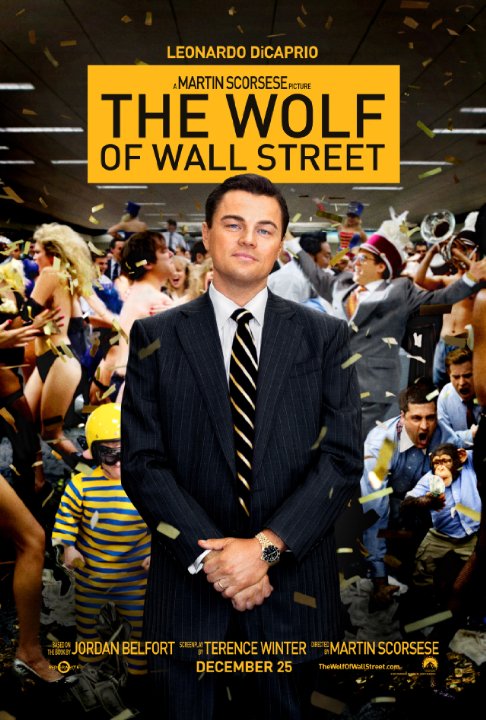Martin Scorsese wastes no time acquainting audiences with the origin of former stockbroker and ex-con Jordan Belfort and his twisted rise to financial success. “The Wolf of Wall Street” is based on the life of Belfort, a stock market crook in the late ‘80s and early ‘90s, who took advantage of investors by engaging in fraudulent deals. Belfort (Leonardo DiCaprio) however was not always a man of moral and ethical corruption. Sadly for him, he experienced the transformation from a man of humble beginnings and serious ambition, to a person consumed by greed and conceit.
That dark side to Belfort’s character is illustrated by Scorsese’s signature protagonist narration that allows the plot to unfold with constant reflection and insight. Due to the nature of the story’s intricate business world atmosphere, this monologue becomes a lifeline for the viewer and allows for comprehension of concepts one could easily disregard. The strength of that monologue proved helpful, but sometimes came off as forced and unnecessary.
That theme of excessive content was not only prevalent in aspects of the script, but also in the inclusion of non-pivotal scenes.
Inevitably for Belfort, with the enormous success he had in the stock market and in conjunction with his personality that has him constantly hungry for experimentation, came his drug and alcohol abuse. Belfort uses drugs habitually throughout his workday and even articulates how his routine works for him: “I use Xanax to stay focused, Ambien to sleep, pot to mellow out, cocaine to wake up and morphine… because it’s awesome.” A few scenes of him partying with business associates such as Donnie Azoff (Jonah Hill) made for a wild and entertaining side to Belfort’s story, but the constant raging quickly became painful to watch when hilarious moments turned into 15-minute sequences of intoxicated men screaming gibberish while foaming at the mouth.
Those scenes as well as those set in Belfort’s work were also christened by a lot of profanity. As a result, “The Wolf of Wall Street” has achieved the title of a drama film with the word “f***” said the most times in cinematic history. The language however, does not take away from the seriousness of the various performances and is in fact used as emphasis to show how workers of Belfort’s firm, Stratton Oakmont, can be virtually illiterate yet find success in the business of selling empty promises. That intention is genuine, but there is a difference between use for effect and the use every other word.
Despite Scorsese’s excess of mature content, his casting for the shady characters of Belfort’s life proved to be outstanding. DiCaprio received a Golden Globe for his role as Belfort, Hill was given an Academy Award nomination for his portrayal of Azoff and other supporting actors such as Margot Robbie, who played Belfort’s “gold-digging” wife, certainly held their own and were a huge contribution towards the recreation of Wall Street life.
(3.5/5)


